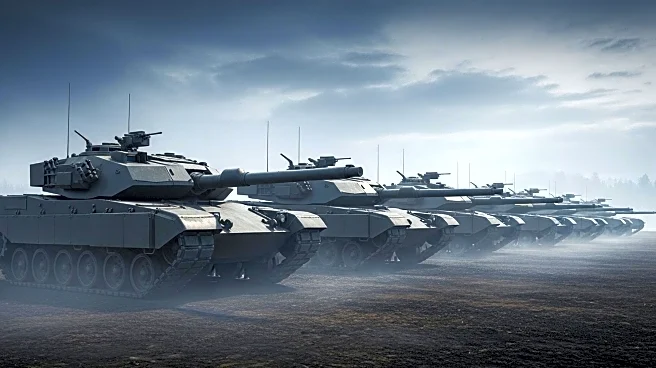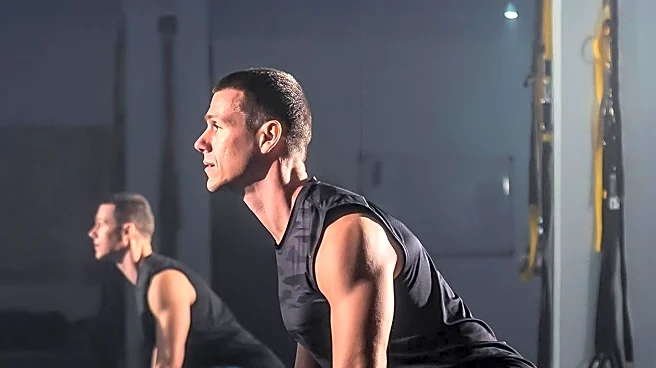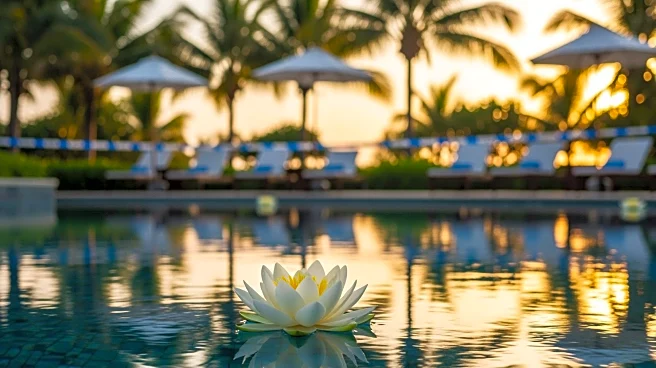What's Happening?
North Korea recently celebrated the 80th anniversary of the ruling Korean Workers' Party with a military parade in Pyongyang. The event showcased North Korea's advanced military capabilities, including intercontinental ballistic missiles and hypersonic glide vehicles. The parade was attended by high-profile international guests, such as Chinese Premier Li Qiang, Russian Security Council Deputy Chairman Dmitry Medvedev, and Vietnamese Communist Party General Secretary To Lam. Despite the impressive display of military might, North Korea faces significant challenges due to its heavy investment in military power, which limits economic development and social progress.
Why It's Important?
The military parade underscores North Korea's focus on hard power as a means of defying international pressure, particularly from the U.S.-led community. This emphasis on military strength comes at the expense of economic and social development, as resources are diverted to sustain the military-industrial complex. The parade also highlights North Korea's strategic alliances with countries like China and Russia, which could influence geopolitical dynamics in the region. The reliance on military power raises concerns about regional security and the potential for conflict, as North Korea continues to upgrade its conventional weaponry.
What's Next?
North Korea's continued investment in military capabilities suggests that it will maintain its current strategic posture, prioritizing defense over economic reform. This approach may lead to further isolation from the international community and increased sanctions. However, North Korea could leverage its military assets in negotiations for sanctions relief or other concessions. The presence of international guests at the parade indicates potential diplomatic engagements that could shape future relations. The ongoing development of advanced weaponry may prompt responses from neighboring countries and the U.S., potentially affecting regional security policies.
Beyond the Headlines
The focus on military power reflects deeper issues within North Korea's governance, where the ruling elite prioritize survival over reform. The lack of soft power and economic diversification limits North Korea's ability to improve living standards for its citizens. The military-industrial complex remains the only globally competitive sector, driven by the personal interests of Kim Jong-un and his inner circle. This dynamic creates a cycle where military investments are justified to maintain power, hindering any significant economic or social progress.









